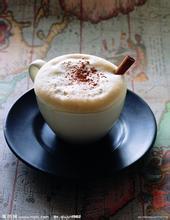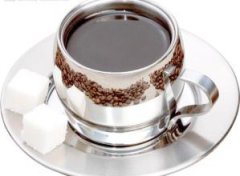A brief introduction to the treatment method of grinding degree and baking degree of fine coffee beans in Cuban Crystal Mountain

The most representative of Crystal Mountain Coffee is "Cubita", Chinese trademark "Hu Jue". Adhering to the principle of perfect coffee, in order to ensure the quality of coffee, all are hand-picked; in order to maintain the flavor of coffee, coffee beans are treated with water washing method; in order to express the excellence of coffee, coffee roasting adopts medium roasting and deep roasting. Cubita is like an elegant princess, with a feminine natural tenderness, nobility, tenderness and elegance. Excellent balance, bitter and sour excellent coordination, in the taste will have a delicate smooth, refreshing and elegant feeling, is the best coffee enjoyment.
Cubita is praised and affirmed by food families from all over the world. It is known as "unique Caribbean coffee" and "special coffee beans in island coffee beans". Crystal Mountain Coffee is produced in Cuba's Crystal Mountain, so it is called Cuban Crystal Mountain Coffee. Crystal Mountain Coffee is synonymous with top Cuban coffee because this area produces precious minerals such as quartz and crystal in addition to coffee. A distinctive feature of Crystal Mountain coffee is its large size and the bright green color of the beans. Its flavor and taste characteristics: full particles, taste uniform, with tobacco flavor. Crystal Mountain coffee beans are typical island beans, taste clean and delicate, slightly sour, not strong but very persistent, and with sweet melon fragrance 1748, coffee was introduced into Cuba by Domica, Cuba began to grow coffee. The fertile soil, humid climate and abundant rainfall in Cuba make it a natural treasure for coffee cultivation. Suitable natural conditions provide a favorable natural environment for the growth of coffee trees, where coffee is well planted and developed. In Cuba, coffee cultivation is regulated by the State. Cuba's best coffee-growing areas are located in the Central Mountains. Because this area is not only planted with coffee, but also produces precious minerals such as quartz and crystal, it is also known as Crystal Mountain. Currently, Crystal Mountain Coffee is synonymous with premium Cuban coffee. A distinctive feature of Crystal Mountain coffee is its large size and the bright green color of the beans.
In Cuba, coffee beans are mostly picked by hand. During the ripening period of coffee beans, they are picked about once every half month. During or after picking, coffee beans are sorted to eliminate immature and bad beans to ensure coffee quality. Cubans usually treat coffee beans in two ways--sun and water. Solarization is the simplest, cheapest, and most traditional way to treat coffee. It involves drying the coffee fruit in the sun, but not fermenting it. The average drying time is about four weeks. The washing law allows more fruit aromas to enter the coffee beans, adding a coarse mineral fruit aroma to the coffee.
At present, Crystal Mountain coffee is very precious. There are two main reasons for this. The first reason is the economic sanctions imposed by the United States against Cuba, which do not allow Cuba to import goods. The second reason is that Cuban coffee beans are currently mostly bought by French and Japanese markets, especially Japan, so it is difficult to buy coffee beans directly from Cuba today. Despite this, Cuban coffee is still on par with Jamaica Blue Mountain coffee in the hearts of coffee lovers around the world.
Crystal Mountain coffee beans are typical island beans, taste clean and delicate, slightly sour, not strong but very persistent, and with sweet melon fragrance. In 1748, coffee was introduced to Cuba by Domica, and Cuba began to grow coffee. The fertile soil, humid climate and abundant rainfall in Cuba make it a natural treasure for coffee cultivation. Suitable natural conditions provide a favorable natural environment for the growth of coffee trees, where coffee is well planted and developed. In Cuba, coffee cultivation is regulated by the State. Cuba's best coffee-growing areas are located in the Central Mountains. Because this area is not only planted with coffee, but also produces precious minerals such as quartz and crystal, it is also known as Crystal Mountain. Currently, Crystal Mountain Coffee is synonymous with premium Cuban coffee. A distinctive feature of Crystal Mountain coffee is its large size and the bright green color of the beans.
In Cuba, coffee beans are mostly picked by hand. During the ripening period of coffee beans, they are picked about once every half month. During or after picking, coffee beans are sorted to eliminate immature and bad beans to ensure coffee quality. Cubans usually treat coffee beans in two ways--sun and water. Solarization is the simplest, cheapest, and most traditional way to treat coffee. It involves drying the coffee fruit in the sun, but not fermenting it. The average drying time is about four weeks. The washing law allows more of the fruit aroma to enter the coffee beans, thus adding a coarse mineral fruit aroma to the coffee.
In Cuba, coffee cultivation is regulated by the state, and the best coffee-growing areas in Cuba are located in the Central Mountains. Because this area is not only planted with coffee, but also produces precious minerals such as quartz and crystal, it is also known as Crystal Mountain. Currently, Crystal Mountain Coffee is synonymous with premium Cuban coffee. Crystal Mountain and Jamaica's Blue Mountains adjacent geographical location, similar climatic conditions, comparable to Jamaica Blue Mountain Coffee, Crystal Mountain is also known as "Cuba's Blue Mountain."
Important Notice :
前街咖啡 FrontStreet Coffee has moved to new addredd:
FrontStreet Coffee Address: 315,Donghua East Road,GuangZhou
Tel:020 38364473
- Prev

Slightly sour Cuba Crystal Mountain Fine Coffee Bean Cultivation Location Climate Elevation Profile
Cubita is praised and affirmed by food families from all over the world. It is known as the unique Caribbean coffee, the special coffee beans in the island coffee beans, and the crystal mountain coffee produced in Cuba's crystal mountain, so it is called Cuban crystal mountain coffee. Crystal Mountain Coffee is synonymous with top Cuban coffee because this area produces precious minerals such as quartz and crystal in addition to coffee. crystal
- Next

A brief introduction to the description of the flavor, taste and aroma characteristics of Nicaraguan boutique coffee beans
Because of the national character of the Latin American people, it is difficult for foreign buyers to do business with the Latin people directly. The Latin people do not attach importance to credit, do things too casually, the quality of shipments is uncertain, and the products exported are also mixed with sundries. But Latin America actually does have a good growing environment suitable for growing agricultural products all over the world, so we came to Nicaragua.
Related
- Detailed explanation of Jadeite planting Land in Panamanian Jadeite Manor introduction to the grading system of Jadeite competitive bidding, Red bid, Green bid and Rose Summer
- Story of Coffee planting in Brenka region of Costa Rica Stonehenge Manor anaerobic heavy honey treatment of flavor mouth
- What's on the barrel of Blue Mountain Coffee beans?
- Can American coffee also pull flowers? How to use hot American style to pull out a good-looking pattern?
- Can you make a cold extract with coffee beans? What is the right proportion for cold-extracted coffee formula?
- Indonesian PWN Gold Mandrine Coffee Origin Features Flavor How to Chong? Mandolin coffee is American.
- A brief introduction to the flavor characteristics of Brazilian yellow bourbon coffee beans
- What is the effect of different water quality on the flavor of cold-extracted coffee? What kind of water is best for brewing coffee?
- Why do you think of Rose Summer whenever you mention Panamanian coffee?
- Introduction to the characteristics of authentic blue mountain coffee bean producing areas? What is the CIB Coffee Authority in Jamaica?

